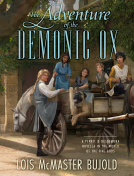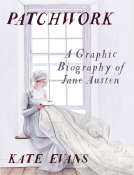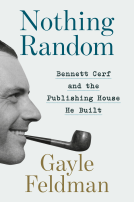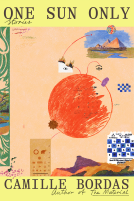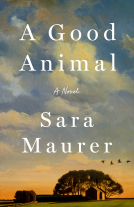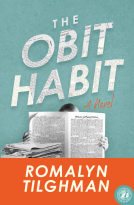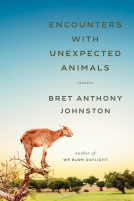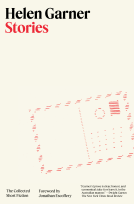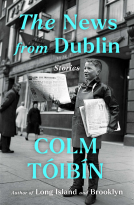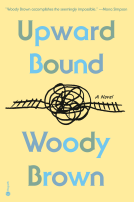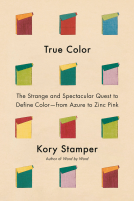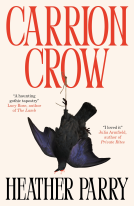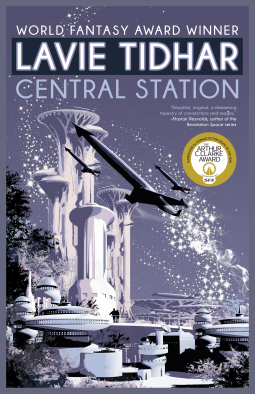
Central Station
by Lavie Tidhar; Lavie Tidhar; Lavie Tidhar; Lavie Tidhar; Lavie Tidhar
This title was previously available on NetGalley and is now archived.
Send NetGalley books directly to your Kindle or Kindle app
1
To read on a Kindle or Kindle app, please add kindle@netgalley.com as an approved email address to receive files in your Amazon account. Click here for step-by-step instructions.
2
Also find your Kindle email address within your Amazon account, and enter it here.
Pub Date May 10 2016 | Archive Date Jul 12 2017
Description
An Amazon Featured Best Science Fiction & Fantasy Book
A Guardian Best SF & Fantasy Book of 2016
Longlist, British Science Fiction Award 2016, Best Novel
2017 Arthur C. Clarke Award nominee
"It's all of science fiction distilled into a single book."
—Warren Ellis, author of Transmetropolitan and Gun Machine
A worldwide diaspora has left a quarter of a million people at the foot of a space station. Cultures collide in real life and virtual reality. The city is literally a weed, its growth left unchecked. Life is cheap, and data is cheaper.
When Boris Chong returns to Tel Aviv from Mars, much has changed. Boris’s ex-lover is raising a strangely familiar child who can tap into the datastream of a mind with the touch of a finger. His cousin is infatuated with a robotnik—a damaged cyborg soldier who might as well be begging for parts. His father is terminally-ill with a multigenerational mind-plague. And a hunted data-vampire has followed Boris to where she is forbidden to return.
Rising above them is Central Station, the interplanetary hub between all things: the constantly shifting Tel Aviv; a powerful virtual arena, and the space colonies where humanity has gone to escape the ravages of poverty and war. Everything is connected by the Others, powerful alien entities who, through the Conversation—a shifting, flowing stream of consciousness—are just the beginning of irrevocable change.
At Central Station, humans and machines continue to adapt, thrive...and even evolve.
A Note From the Publisher
Advance Praise
2017 John W. Campbell Award Winner
2017 Arthur C. Clarke Award Nominee
-A My Bookish Ways Must Read in Science Fiction, Fantasy, and Horror
-A Kirkus Science Fiction, Fantasy, & Horror Books You'll Want to Read in May
-An io9 Science Fiction, Fantasy, and Horror Book That Will Blow Your Mind
-An Amazon Featured Monthly Best Science Fiction & Fantasy Book
-A Publishers Weekly Staff Pick
-A Bookskill Recommended Book
[STAR] “World Fantasy Award–winner Tidhar (A Man Lies Dreaming) magnificently blends literary and speculative elements in this streetwise mosaic novel set under the towering titular spaceport. In a future border town formed between Israeli Tel Aviv and Arab Jaffa, cyborg ex-soldiers deliver illicit drugs for psychic vampires, and robot priests give sermons and conduct circumcisions. The Chong family struggles to save patriarch Vlad, lost in the inescapable memory stream they all share, thanks to his father’s hack of the Conversation, the collective unconscious. New children, born from back-alley genetic engineering, begin to experience actual and virtual reality simultaneously. Family and faith bring them all back and sustain them. Tidhar gleefully mixes classic SF concepts with prose styles and concepts that recall the best of world literature. The byways of Central Station ring with dusty life, like the bruising, bustling Cairo streets depicted by Naguib Mahfouz. Characters wrestle with problems of identity forged under systems of oppression, much as displaced Easterners and Westerners do in the novels of Orhan Pamuk. And yet this is unmistakably SF. Readers of all persuasions will be entranced.”
—Publishers Weekly, starred review
[STAR] “. . . a fascinating future glimpsed through the lens of a tight-knit community. Verdict: Tidhar (A Man Lies Dreaming; The Violent Century) changes genres with every outing, but his astounding talents guarantee something new and compelling no matter the story he tells.”
—Library Journal, starred review
“It is just this side of a masterpiece — short, restrained, lush — and the truest joy of it is in the way Tidhar scatters brilliant ideas like pennies on the sidewalk.”
—NPR Books
“Breathtakingly heady . . . a wonderfully inventive set of interconnected tales, brimming with sensory detail and paying tribute to a plethora of science-fiction tropes.”
—Intergalactic Medicine Show
“Central Station is in every way a literary masterpiece.”
—The Future Fire
“Thought-provoking . . . highly intellectual.”
—Booklist
“Beautiful, original, a shimmering tapestry of connections and images - I can't think of another SF novel quite like it. Lavie Tidhar is one of the most distinctive voices to enter the field in many years.”
—Alastair Reynolds, author of the Revelation Space series
“If you want to know what SF is going to look like in the next decade, this is it.”
—Gardner Dozois, editor of the best-selling Year’s Best Science Fiction series
“A dazzling tale of complicated politics and even more complicated souls. Beautiful.”
—Ken Liu, Nebula, Hugo, and World Fantasy winner and author of The Grace of Kings
“If Nalo Hopkinson and William Gibson held a séance to channel the spirit of Ray Bradbury, they might be inspired to produce a work as grimy, as gorgeous, and as downright sensual as Central Station.”
—Peter Watts, author of Blindsight
“Central Station is masterful: simultaneously spare and sweeping—a perfect combination of emotional sophistication and speculative vision. Tidhar always stuns me.”
—Kij Johnson, author of At the Mouth of the River of Bees
“Central Station boasts complexity without complication, sharp prose, and a multi-dimensional world.”
—Jeffrey Ford, author of The Girl in the Glass
—Maxim Jakubowski, author of the Sunday Times bestselling Vina Jackson novels“Like all good science fiction, the linked stories of Central Station are really about the here and now we live in. Most urgently, they are about just who 'we' might be, here on this overcrowded, contested, Anthropocene world that we all must share. Lavie Tidhar writes in generous detail and expansive vision of a New, and old Jerusalem, and of the many possible 'we's who live there."
—Carter Scholz, author of Radiance
“Tidhar weaves strands of faith and science fiction into a breathtaking and lush family history of the far future.”
—Max Gladstone, author of Three Parts Dead
“Disturbingly strange, yet bizarrely familiar, like implanted memories from a future you have not yet lived. I loved it.”
—Eileen Gunn, author of Stable Strategies and Others
“A mosaic of mind-blowing ideas and a dazzling look at a richly-imagined, textured future.”
—Aliette de Bodard, author of The House of Shattered Wings
"I recommend it highly. It'll stay with you for days, because every idea in it has more ideas under it. It's all of science fiction distilled into a single book."
—Warren Ellis, author of Transmetropolitan and Gun Machine
"It's an amazing book!"
—Jewelle Gomez author of The Gilda Stories
“Central Station is brilliant.”
—Barnes and Noble
“I smelled the smells of Tel Aviv in the first paragraph of the introduction, meat cooking and sweat and sand and Mediterranean air. I saw the city squares, flowing with life and laughter and languages. I felt like I had come home.”
—The Warbler
“[Tidhar] has created a textured and original future that echoes real historical and economic tensions while satisfying veteran readers with deliberate echoes of classic science fiction…Deeply humane.”
—Chicago Tribune
“A standout, absorbing, well realised sci-fi world, with characters who feel like they’re about to stroll off the page and take you for a cup of arak.”
—Sci-Fi and Fantasy Reviews
“[T]he escape from more traditional (and commercial) story structure allows the Central Station to be a place where the extraordinary and alien are commonplace, its world imbued with life beyond the service of a single narrative arc.”
—Ars Technica
“It's a compelling collection that mixes the epic and the intimate, one that succeeds at being profound, incredibly moving and, quite simply, stunning.”
—Starburst Magazine, 10 out of 10 stars
“Some of Tidhar’s finest writing. Verdict: Come to Central Station and allow yourself to be enveloped in its embrace. "
—Sci-Fi Bulletin
“Central Station combines a cultural sensibility too long invisible in SF with a sensibility which is nothing but classic SF, and the result is a rather elegant suite of tales.”
—Locus
“Central Station is without question the best assemblage of short stories I’ve read in recent memory…. Sublimely sensual, emotionally moreish, and composed with crystalline clarity irrespective of its incredible complexity.”
—Tor.com
“It’s unlike any Science Fiction I’ve ever read, equally parts poetic, abstract, and authentic in its ability to show us a strange future we can believe that, yes, is certainly possible.”
—Elitist Book Reviews
“The breadth of Tidhar's imagination in this book just left me gasping…if you love worldbuilding, good characterisation and a world of possibilities, this is definitely for you.”
—Blue Book Balloon
—Books, Bones & Buffy
“This is a novel that captures the heart of human experience (in all it’s odd ways) whilst simultaneously building a world full of wonderful and far-reaching ideas. It’s beautiful, considered and complex in equal measure.”
—The Bookbeard’s Blog
“I love Lavie Tidhar’s writing and, as always, here it is beautiful.”
—For Winter Nights
“Tidhar's imagination is not only seen in the newly-minted terms or the quirky languages the novel has, but in the ideas it contains. Central Station is full of fresh and well-thought concepts.”
—Sense of Wonder
“Great…it has a very Blade Runner feel to it.”
—The Writerly Reader
“If SF is about expanding boundaries and making us think in new ways, then this is absolutely at the core of the genre. I can’t recommend it highly enough.”
—Fed on Peaches
“Central Station is one of the most breathtakingly, bewilderingly, mindbendingly imaginative stories I’ve read in some time.”
—Bookaneer
“If you’re looking for something a little more philosophical and thoughtful than the usual fare in the genre, look no further than this book . . . a fantastic read.”
—Strange Currencies
“Lavie Tidhar gives enormous depth to the world he creates. . . . Central Station is a fascinating glimpse into a very possible future.”
—Metapunk
“Central Station is a gorgeous book”
—Booklikes
“I think I've just read one of the books of the year, although we are only in April.”
—Dreams of Elvex
“I wouldn't be surprised to see this one on the Nebula shortlist next year.”
—Rob Weber, Val’s Random Comments
“The lushness, the alien-ness, but organic feel of the setting of Tel Aviv, with the gamespace and the Conversation flickering in and around, reminded me of Hyperion by Dan Simmons.”
—Koenix
“Highly recommended to anyone who enjoys literary science fiction, especially authors like Hannu Rajaniemi”
—Agreybox
“This is science fiction told on an intimate scale.”
—Strange Alliances
“What makes this book special is the strong literary quality to the writing…. Central Station is not like anything else you've read. This book shows clearly that Lavie Tidhar is an author to watch.”
—SF Revu
“Central Station is a wondrous thought-provoking book, as you would expect from someone as highly credentialed as Lavie Tidhar.”
—Fantasy Book Review
“Powerfully imagined and beautifully rendered… capture[s] profound emotional truths”
—Interzone
“Central Station is a thoughtful, poignant, human take on a possible future.”
—Fantasy Literature
“I loved the array of characters, cultures, real and imagined from the robotniks with their robotic religion, to the description of a futuristic Tel Aviv that was so vivid, I could almost see it.”
—The Conversationalist
“Full of sublime ideas and beautiful, evocative prose...It is a novel to fall in love with.”
—Dancing on Glass
“Every page was a delight.”
—Astounding Yarns
“It’s a really great piece of fiction, and one of the most interesting science-fiction novels of recent years.”
—Bookmunch
“The further I got into this novel, the more I enjoyed myself.”
—The Little Red Reviewer
“[A] wonderfully inventive set of interconnected tales, brimming with sensory detail and paying tribute to a plethora of science-fiction tropes, there are few works to rival Central Station.”
—Intergalactic Medicine Show
“Tidhar is one of the few authors who can take these big, uncomfortable ideas and story tropes and pull something brilliant and beautiful and fresh out of them.”
—Kalireads
“This is the future we were promised. . . . In Central Station the future is all around, all those glittering, exciting, shimmering things that we learned to recognise from science fiction.”
—Paul Kincaid, the Anglia Ruskin Centre for Science Fiction and Fantasy
“A tapestry of individual characters, every one artfully and lovingly drawn down to the very least, whose lives touch and interact with each other, but who exist in their own right.”
—Adrian Tchaikovsky, Shadows of the Apt
Marketing Plan
-Promotion targeting U.S., Israeli, British, and Middle Eastern–themed online media, reviews, and interviews
-Planned book giveaways on Goodreads, SF Signal, and other online outlets
-Promotion on author's social media (@LavieTidhar; facebook.com/lavietidhar)
Available Editions
| EDITION | Other Format |
| ISBN | 9781616962142 |
| PRICE | $15.95 (USD) |
Average rating from 76 members
Featured Reviews
 Glennis L, Bookseller
Glennis L, Bookseller
This is a set of interlocking short stories that take place in Tel Aviv of the future. There is a space station above it so it is a hub of travel for people coming from the colonies to return home. The stories all are connected to one family that lives there. Most of the stories have been published before but a few are new to this collection. It isn’t all life and death stories some are quiet gems about birth, death, and religion. This isn’t a huge sprawling world you see, it is a close to home slice of the future and is rather fun to read how we will change as a society because of what we did when we fought wars, came up with new technologies and met new species. I did like that even in the far future there were still book collectors. And enjoyable read and makes me want to pick up more of the author’s stuff.
 Brad H, Reviewer
Brad H, Reviewer
You know you've got a winner when:
You keep saying to yourself, over and over and over, I hope this never ends, I hope this never ends.
You get so deeply immersed in ideas, with so much world-building and awe and exploration of humanity, post-humanity, robot, evolutionary AI, and how everyone interacts, explores, and lives together pretty much harmoniously, that you cry and say, I live here. I will always live here. I have already been living here.
You snap out of a nested story self-reference long enough to realize that the author just Louis Woo'd you or slammed you right into a data-singularity mine within the Game-World or you just found your way to the mythical land of Pac-Mandu.
Woah.
This novel is not a plot-heavy. It doesn't need to be. It follows an ensemble list of characters, all fascinating and wonderful in their own rights, following a dense nested stream of short stories tightly tied to the place of Tel-Aviv a good long while AFTER the technological singularity had had its way with the world and the solar system, until everyone from normal humans, noded humans, cyborgs, demi-godlings, and most especially, the "Others" (Post-Singularity Intelligences) coexist and live in an extremely idea-dense world.
Its full of Jewish-Robot religions, a wide assortment of post-mortality packages, Strigoi (data vampirism, damn I loved Carmel,) and a heavily advanced system of MMORPG's that is tied very tightly to real-money systems, and can help you earn enough to book passage off-planet by way of captaining a starship in-game. How cool is all this? I can't even begin click off all these hundreds of wonderful ideas, and so many of them get explored so deeply, too.
Yes, it's a setting piece, but the characters are much more than just setting. The themes are also deep and introspective and Lavie Tidhar loves to explore everything deeply and interestingly.
I just couldn't get enough of this novel.
But don't expect a plot payoff, mind you. This isn't that kind of novel at all. Think about an interwoven tapestry of dense short stories that touch and caress Central Station, itself, and just revel in the glory of sensations. You won't be disappointed.
As something of an afterward, I do want to bring up one last thing. Another reviewer mentioned that the feel is close to Hannu Rajaniemi in many ways, and I have to agree. Hell, the one thing that decided me on reading this book was that reference. It sold me and sold me HARD.
So what about a post-analysis comparison? Both artists love their nested stories, their sometimes nearly hidden easter eggs, their wide and exhaustive knowledge of the SF field, and the glory of the godlike *idea*. Both imagine a Post-Singularity solar system. The difference between them are pretty fundamental, though. Lavie Tidhar focuses on reflection and coming to grips with reality and just plain living. It's gorgeous. Hannu Rajaniemi doesn't ignore those themes, but he also ties some really damn BIG rip-roaring adventures and plot twists among all the nested stories.
You might say that this novel has a bit more yin to Hannu's yang. This might be a major selling point to prospective readers. Who knows? I know I loved it, but it IS quite different in tone. :)
I could read this novel forever. I could keep reading its like from now to eternity. It's just that good and it's BRIGHT in my head.
Thanks to Netgalley for the ARC!
 Donde acaba e, Book Trade Professional
Donde acaba e, Book Trade Professional
Absolutely amazing. Best read of 2016 so far.
 Librarian 17772
Librarian 17772
Wow. This is about as science fiction as science fiction gets. First, it's loaded with science fictional elements, set centuries in the future in a space port city populated by humans, artificial intelligences, cyborgs, and others. Tidhar has done a lot of work to create a vividly imagined future that feels real and lived in.
At the same time, it's meta science fictional. The book is full of references to the work of other science fiction writers. One character is described as a Shambleau, a concept from an old C.L. Moore story; some Mars colonists rebuild their bodies to resemble the denizens of Edgar Rice Burroughs's Barsoom; there are also many recognizable references to the works of Cordwainer Smith, Philip K. Dick, and others.
All that said, Central Station is not a plot-driven book. Constructed from a series of related short stories, the book is much more about character and setting than plot or action. The story has several main characters with a variety of past and present relationships. There are some flashbacks to past events but in general the book follows the tangling lives of several residents of the city around Central Station. They're an ethnically diverse group, Arab, Jewish Israeli, African, Chinese, and combinations thereof, living between Arab Jaffa and Israeli Tel Aviv, in a culture that combines historic and futuristic cultures, from Judaism to robot religions. Not just ethnically diverse, either -- robotnik ex-soldiers, robots, augmented humans. But they're all real and distinct characters.
Maybe it's the book's structure, but there were some things that I thought Tidhar was leading up to that never happened, and some mysteries that aren't fully resolved. Even so, I greatly enjoyed the book, the world, and its characters, and I hope Tidhar does more with the world of Central Station.
(Not the kind of book my library buys. But I'd buy more like this.)
 Rachel S, Reviewer
Rachel S, Reviewer
Central Station is a "fix-up" novel of previously published short stories by Lavie Tidhar — stories which were always intended to be drawn together into a whole novel. It hints at huge changes and shifts for humanity while intimately focusing on the individuals; it's about a transformed human experience in the solar system, but stays in a single city. And it harks back to the feel of a golden age of SF with a distinctly retro vibe that is rich and imaginative. It manages to evoke the past and the future simultaneously, making me feel a sense of longing and familiarity with a history of pulp SF I've not even read! (And just look at that cover art from Tachyon — it's perfect!)
This is the first work I've read by Lavie Tidhar, and I can't wait to read more. I was so happy to come to Central Station without any expectations, encouraged by only a few brief anticipatory remarks from others. I not only thoroughly enjoyed Central Station, I also enjoyed going in blind and letting its atmosphere sink in.
So what is Central Station about? It's a series of stories about the people who live in Tel Aviv, near the space port Central Station. There are the street vendors, the artist birthing and killing a god while the locals gather to watch, a data vampire who came down the gravity well and set up house with a book collector, an Oracle who speaks to the Others, and and not-entirely-human children from the birthing centers... They're all here for a reason — gathered, returned, those who never left — in the shadow of Central Station, where people come and go from the stars.
"I don't want to go to the stars,' Vlad said. 'Going away seldom changes who we are."
(How's that for a quote that condenses the oft-repeated story of humans exploring the stars and themselves?!)
These stories can stand on their own, but meld together into an overall bigger narrative that works seamlessly. The chapters were originally published as short stories from 2011 to 2015 (and then "substantively" edited to combine them) and then a few chapters are original to final work.
In each chapter you experience a part of the story from a different character's viewpoint. Every person is a secondary character in someone else's story. I love this structure! It gave me chills and reminded me of reading Charles de Lint or Angelica Gorodischer for the first time. I mean, yes, it's totally different from works by those authors, but I just had the sense I was reading something different and impressive. The way the story was told pulled me in just as much as the story and characters itself.
Frankly, I do think it's strange that the publisher's description only names Boris, when other characters and women like Miriam ("Mama Jones") and Carmel (the data vampire) are just as important as him. And don't forget the robo-priest, R. Brother Patch-It, or the alte-zachen man! There's a plethora of fantastic types of people and places and things in Central Station. The world was solid; its depth was established with only brief mentions and small infodumps when necessary. Sometimes hints are better than long treatises, because half the fun is for the reader to fill in the blanks in their own mind and to use that imagination muscle to envision the bustling, colorful Tel Aviv transformed in the future with a space port looming above!
The lushness, the alien-ness, but organic feel of the setting of Tel Aviv, with the gamespace and the Conversation flickering in and around, reminded me of Hyperion by Dan Simmons. The idea that this is on Earth but felt actually alien to me was fantastic and refreshing: this is a futuristic imagining of a part of the world that is already unknown to me, but remained human and real.
The truth is I loved reading this book so much but it's hard to explain why, because it was so personal. It triggered some wonderful memories of other books and reading experiences and this intangible thing I seem to be pursuing in my own personal reading journey. Is it possible to feel nostalgia for a book while reading it for the first time? Because that's what it felt like. I also appreciated the subtle nature of the story itself: there may not be a decisive-enough conclusion to the tale for some readers, but I didn't need one. There are hints and implications and I saw where the story could go... it was the journey itself and the characters that I devoured.
 Matt F, Reviewer
Matt F, Reviewer
Whilst the blurb for Lavie Tidhar’s Central Station reads like a cyberpunk thriller, the book is complex, engaging and full of wonder. It’s a novel of dichotomies, divergences and bifurcations; it’s about life and death, evolution and creation, the virtual and the corporeal, about vast space and local neighbourhoods, and strange, new technologies and ancient, human emotions.
 Caroline M, Reviewer
Caroline M, Reviewer
I'm an unashamed fan of Lavie Tidhar's work. So, I was very excited at the opportunity to read his latest novel, Central Station (published by Tachyon Publications, who provided a review copy through NetGalley). And every page was a delight.
Central Station is an amalgam of several previously published pieces of short fiction, woven together with new material into a composite novel. All of the pieces are set in or around Central Station itself, a spaceport built just outside Tel Aviv, in a post-war, post-fossil fuel society.
For all its futuristic setting, Central Station speaks to the world we live in now. This is a novel about borders and connections, emigration and diaspora and the families we are born into or create for ourselves. Where people are blends of human and machine, and religion is a literal drug.
Humanity has colonised the stars, and Central Station itself is the jumping off point to those varied communities in space. The community that has built up around the spaceport is a melting pot of cultures and races, living and working in an informal economy of shebeens, salvage and more and less legal bioengineering. The novel follows several of the residents of that community as their lives cross and interact.
In Tidhar's novel, the connections between family and community are manifested through The Conversation: an all-encompassing background chatter of intertwined social media, facilitated by devices implanted at birth. For some, that level of connection is not enough, and one family patriarch, Weiwei Zhong, made a deal to ensure that his family and descendants will all share each others' memories. But the volume of memories are threatening to overwhelm the bootleg technology, leaving his son with the equivalent of dementia as he tries to manage and process the volume of data. Boris Chong returns from the stars to assist his ailing father, but finds himself confronting the family drama he sought to escape by emigrating and reconnecting with a lost love, Miriam Jones.
The world left behind does not stand still for those emigrants and returners. Relativity means those who leave and return have not aged as much as those left behind. As always, the person who leaves expects the place they have left to remain the same, but is the one who often changes least, struggling to cope with a home that has not stood still since their departure.
Around Boris Chong and his family accrete a number of other vignettes of Central Station residents and visitors. Miriam Jones's brother Achimwene Jones is a collector and seller of antique books. He has no node, making him deaf to The Conversation. But his very isolation and distance from others makes him irresistibly fascinating to Carmel, a strigoi, and Boris's ex. Infected with a virus, Carmel is a data-vampire, gifted with the ability - and need - to feed on the knowledge and memories of others. She becomes integral to a piece of digital performance art made by a god-artist called Eliezer. In order to help Carmel, Motl, a homeless cyborg former soldier, supplies a drug called Crucifixation, creating tensions in his relationship with the fully-human Isobel Chow. A relationship that in itself is a taboo.
Motl's story speaks to how we treat and value the military. With the conflict that they were created for long concluded, the former cyborg soldiers are discarded and treated as less than human. Left to beg for scraps, they live on the very margins of society. But these cyborg soldiers are not as disposable as was originally envisaged. Their essential humanity persists. Ostracised for their fusion with the mechanical, they watch from sidelines as, ironically, humanity becomes ever more enmeshed with the digital.
Central Station comes together to become a complex and multi-layered novel that speaks of family and the nature of humanity. It's a beautiful thing, and it would be a crime if it doesn't get some award nominations next year.
Goodreads rating: 5*
 Jennifer J, Media/Journalist
Jennifer J, Media/Journalist
A future Tel Aviv with stories that reflect a rich history of diverse and interesting people. Tidhar always has interesting tales to tell.
 Paula D, Reviewer
Paula D, Reviewer
Mr. Tidhar's book, "Central Station," is a more of a collection, or melange, of interrelated stories, all revolving around the great space port of Earth, Central Station, in Tel Aviv. The setting of the novel is the post-human, post-Singularity of old Earth.
There are many characters, human, post human, machine, cyborg, etc. Mr. Tidhar weaves all of these characters and situations into a lyrical whole, much like the different components of a musical composition. The feeling of the book more more cinematic, reminiscent of Steven Soderbergh's "Traffic."
A very unique and challenging science fiction novel - a very good read!
 Helen L, Educator
Helen L, Educator
Utterly mesmerising. The setting, the cast of characters, the flow- all excellent. Lavie Tidhar has outdone himself with another fabulous novel.
 Kel M, Media/Journalist
Kel M, Media/Journalist
Science fiction Saturday!
Central Station by Lavie Tidhar (Tachyon Publications, $15.95).
Chasing Embers (A Ben Gaston Novel) by James Bennett (Orbit, $14.99).
Company Town by Madeline Ashby (Tor, $24.99).
Faller by Will McIntosh (Tor Books, $25.99).
Science fiction serves so many purposes: It offers up potential futures for us to examine (including possible unintended consequences); it can grant us enough distance from the present to really look at ourselves and our biases; it can serve as a hidden way to critique a current system; it can keep us from going stir-crazy when we’re running a fever and all eleventy-hundred channels are running politics.
In the case of Lavie Tidhar, the Israeli-born, London-based s/f novelist, pretty much “all of the above” applies. His most recent American release is Central Station, a series of linked short stories set at the base of a space/global travel/communication station built between Israeli-controlled Tel Aviv and Arab Jaffa in a sprawling metropolis that is both cutting edge future (space travel, solar-powered gliders, genetic engineering, a quantum-psychic Internet called “the Conversation”) and as dusty and poverty-stricken as any third world alley.
In short, he is writing about humans and the things we trail in our wake–mostly love and war. People disappear into space travel and, if they reappear at all, come trailing data vampires. A robotic mohel does circumcisions (no doubt with more precision and cleanliness than some humans).
Tidhar is always really, really, good. Central Station is no exception.
Full disclosure: Chasing Embers is actually urban fantasy, but it ended up in my s/f pile, so there you go. The first in a planned series from James Bennett, it’s got a pretty strong kick, opening with action galore.
Even better, Bennett gives us the back story in drips and drops at appropriate points, rather than wasting time with data dumps that overwhelm the tale. In this case, it lets the action lead the fantasy.
Main points: Ben Garson–alias Red Ben–is a dragon. He has taken human form and lives among us to help keep the peace between mortals and immortals. A breach of that peace sends him into action. The good news is that the book is peppered with more historical and mythological references than you could hope for; the bad is that Ben really needs more personality if he’s going to carry a series forward. Yeah, who’d have thunk a dragon could be kinda vanilla? We’ll see how this one goes.
Madeline Ashby’s Company Town has more going on than a one-armed fruit juggler at a produce market–and that’s a good thing.
In a future world where everybody’s got some sort of enhancement, Hwa’s super-power is that she has none. Nada. Zilch. And that means she can’t be hacked, tracked, or disarmed. Who knew ordinary could be so very cool? She’s got a gig as a bodyguard for sex workers on an oil rig big enough to be a city (hence, “company town”). When the rig is purchased, protecting the heir to the fortune is added to Hwa’s portfolio.
And did I mention the serial killer going after the sex workers, à la our old buddy Jack the Ripper? The more things change, the more they stay the same.
But that makes Company Town sound like an action novel, a not-entirely-true description. It is also a novel of ideas, including the cultural implications of post-humanism, dangers and pitfalls of the Singularity, and, via Hwa’s self-hatred and self-judgment, our intensely female-oriented body- and appearance-shaming culture.
In short, a damn fine read for smart people,
Post-apocalypse: A man finds himself floating in air on a town-sized chunk of rock, with no memory of what happened. No one else knows, either, which makes this Day One.
That’s the beginning of Will McIntosh’s latest novel, Faller. Something big happened, but what? The whole planet is in pieces, and with just the contents of his pocket, the man sets out to solve the mystery of how their current situation came about.
McIntosh, who can be counted on for originality, puts quantum physics on the agenda here; using flashbacks to a group of scientists from before Day One, we eventually see that the world was smashed in a far more literal sense than atom-smashing bombs. Like most of McIntosh’s novels, it takes longer to absorb than to read, and you’ll be thinking about it for a very long time
Central Station imagines a world where divisions have blurred between man-created and biological entities and corporate and personal memory. Conversation has shifted from personal one-on-one dialogue to universal eavesdropping and vicarious experience available through an implanted node.
Central Station is the interstellar port that rises above Jewish Tel Aviv and Arab Jaffa where people "still lived as they had always lived." We will recognize aspects of their lives, the human need for love, the seeking of answers through faith and escape through drugs, the vilification of those who are different. And yet this world, this society, is totally a new imagining.
Originally a series of short stories about individuals whose ancestors came to build the station or fight in the old wars, this is not a plot-driven book but is still compulsive. Long explanations do not burden the tale; you take the strange and new by faith and context, growing into understanding.
Some of the characters and their stories include:
Boris Chong and Miriam Jones had once been young and in love. Boris worked in the labs that created human life but left to work on Mars. He has returned to Central Station with a Martian aug, a parasite, having learned his father's memory was failing. Miriam has adopted a strange child born in Boris's lab.
Boris is followed by an ex-lover named Carmel, a data vampire who is shunned and dangerous. Carmel becomes lovers with one of the few humans without a node, Achimwene, a man she cannot feed on and who cannot become addicted to the dopamine high stimulated by her theft of their memory data. Sometimes he wonders what it was like to be "whole," growing up part of the Conversation, for a human without a node was a 'cripple'. His passion is for mid-twentieth century pulp fiction books, the cheap paperbacks crumbling and yellowed. Their story and search for answers was one of my favorite sections.
"Just another broken-down robotnik, just another beggar hunting the night streets looking for a handout or a fix or both."
Miriam's sister Isobel Chow is in love with Motl, an ex-soldier who was mechanically rebuilt over and over until he is more machine than man. Robots haven't been made for a long time and these veterans end up on the street begging for replacement parts to keep going. He no longer recalls what wars he had fought, but the vision of war and death remain. He is an ex-addict of the faith drug Crucifixion. Now his parts are breaking down, but his feelings are strong. "Sometimes you needed to believe you could believe, sometimes you had to figure heaven could come from another human being and not just in a pill."
"This part of the world had always needed a messiah."
R. Brother Patch-It is a robo-priest and part-time moyel. "We dream a consensus of reality," he preaches. It feels tired, old, his parts wearing out, and sometimes he is envious of the human trait of sensation and stimulation. "To be a robot, you needed faith, R. Patch-It thought. To be a human, too."
On the flip side, Ruth Cohen longs to be part of something bigger, a total immersion in The Conversation, the linked awareness made possible through the node implant. "Are you willing to give up your humanity?" she is asked.
Behind these otherworldly characters are still basic stories of humanity's essence: the search for love and meaning.
"It is, perhaps, the prerogative of every man or woman to imagine, and thus force a shape, a meaning, onto that wild and meandering narrative of their lives by choosing genre. A princess is rescued by a prince; a vampire stalks a victim in the dark; a student becomes the master. The circle is complete. And so on."
"There comes a time in a man's life when he realizes stories are lies. Things do not end neatly."
My son, blog writer of Battered, Tattered, Yellowed and Creased, raved about Tidhar's book (read his review here) which motivated me to request it through NetGalley. Central Station has won multiple awards and huge recognition. It is sure to be a classic. I thank the publisher for the ebook in exchange for a fair and unbiased review.
